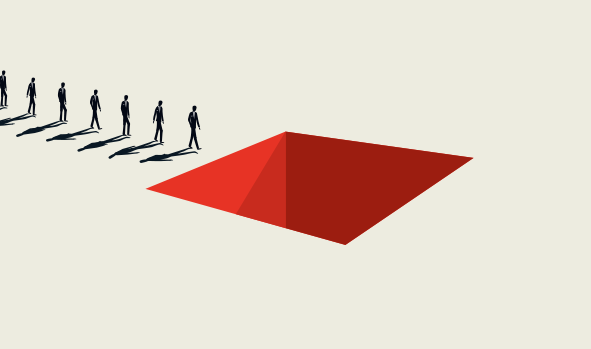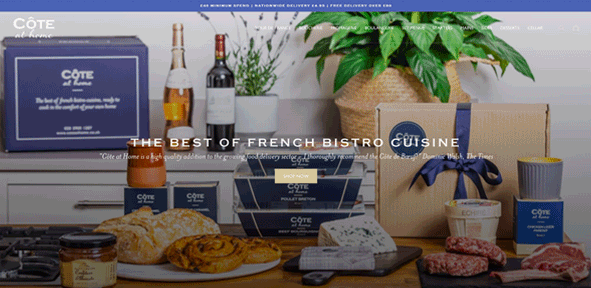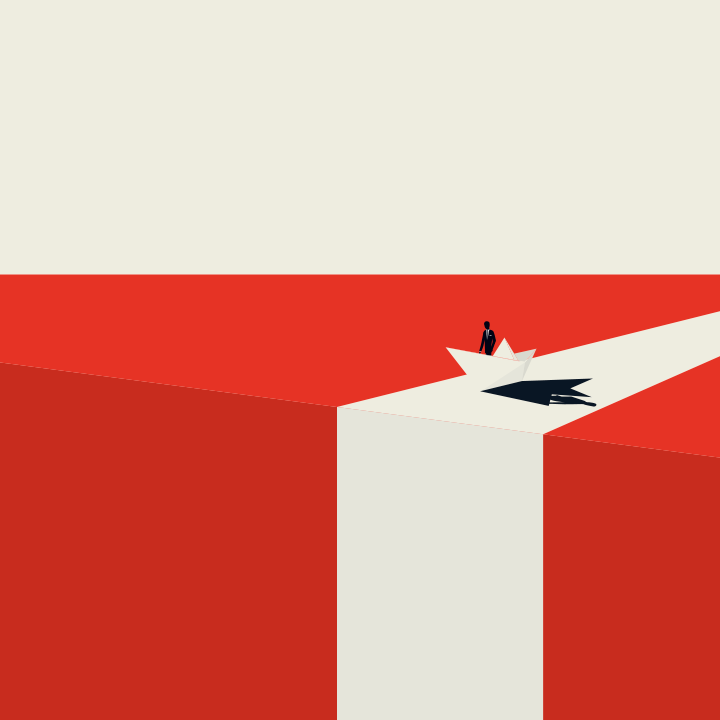HOW TO BUILD CRISIS RESILIENT BRANDS
Crisis Series – Part 1
“Resilience is the flexibility to respond to changing circumstances. It’s what allows brands not only to survive but also to thrive in uncertain times.”
Anna Qvennerstedt
Global Chair Member, Forsman & Bodenfors
With the sudden shock and panic now over from the COVID crisis, we are now settling into the ‘new normal’ of on-and-off-again lockdowns and formulating new habits for our businesses, all the while, bracing ourselves for the next crisis; the quietly creeping recession and wondering how our brand can survive.

As we see the job cuts and big brands collapsing, accepting this new reality is the best course of action. The truth is you do need to be prepared for the economy to get a lot worse. But how do you ensure you survive? Is there a way to make your brands resilient to crisis’?
Increase revenue streams
The best way to survive is by finding the money to increase your financial runway. We saw this with the onset of the COVID crisis. The brands that succeeded to stay afloat generated extra cash by adding revenue streams.
To increase revenue streams, many businesses shifted to online; it was essential. But how do you stand out when everyone is online?
The only thing that’s keeping others from copying you is having a solid brand. People will choose a company that they trust. And that is where branding comes in.
When COVID initially hit, a lot of business owners felt branding was completely irrelevant, putting it on the back burner as they struggled to make sense of the crisis.
However, not only was branding crucial in making the difference between which companies stood out and which fizzled away, but it also provided the answers on how to pivot, reposition, communicate, and behave.
Let’s take a look at how branding plays it’s part in situations like these, helping us to create a crisis resilient brand.
Purpose at the heart of decision making & action
Crisis can create fear and industry-wide panic. In these times referring back to your brand purpose as your north star can help guide you to make decisions and take actions that do not seem foreign to your brand.
It helps you stand out from your competition; they look to follow others, while you take the lead. You can use your brand purpose and the wider brand strategy as a blueprint to navigate your behaviour and guide your need to pivot.
Brand purpose is a core component of brand strategy, that can help your company become more resilient to fading away from memory, and stand out regardless of what the crisis is.
THE POWER OF PURPOSE
So we have established that reminding ourselves of why we exist when there is a crisis can help ground us, reorient us and help us feel a little less lost.
It’s clear that a crisis is a time when your purpose is more relevant than ever as it will not only help your customers identify you in a sea of similar services but also guide what you need to do differently. But let’s remind ourselves of brand purpose again.
So What Exactly is Brand Purpose?
In his book Start with Why, Simon Sinek explains how selling your purpose can be powerful.
Here’s an example of a man explaining why he would make a great partner with just the facts and no ‘why’ as Simon refers to it.
• “I am extremely rich.”
• “I have a big house and I drive a beautiful car.”
• “I know lots of famous people.”
• “I’m on TV all the time, which is good because I’m good looking.”
• “I’ve actually done pretty well for myself.”
Here it is again but with a strong purpose & ‘why’.
“You know what I love about my life? I get to wake up everyday to do something I love. I get to inspire people to do the things that inspire them. It’s the most wonderful thing in the world. In fact, the best part is trying to figure out all the different ways I can do that. It’s amazing. And believe it or not, I’ve actually been able to make a lot of money from it. I bought a big house and a nice car. I get to meet lots of famous people and I get to be on TV all the time, which is fun because I’m good looking. I’m very lucky that I’m doing something that I love, I’ve actually been able to do pretty well because of it.”
We can see just how much of a difference it makes.
Here’s another example this time applied to a business. Again just the facts and no ‘why’.
• “Our company is extremely successful.”
• “We have beautiful offices, you should stop by and check them out sometime.”
• “We do business with all the biggest companies and brands.”
• “I’m sure you’ve seen our advertising.”
• “We’re actually doing pretty well.”
And this time with a powerful purpose & ‘why’.
“You know what I love about our company? Every single one of us comes to work every day to do something we love. We get to inspire people to do the things that inspire them. It’s the most wonderful thing in the world. In fact, the fun part is trying to figure out all the different ways we can do that. It really is amazing. The best part is, it is also good for business. We do really well. We have beautiful offices, you should stop by sometime to see. We work with some of the biggest companies. I’m sure you’ve seen our ads. We’re actually doing pretty well.”
The company’s brand purpose here is ‘inspiring people to work from their passion’.
THE COLD HARD DATA
And if those examples weren’t convincing enough, and you’re after the data, you can have a look at new research into How Consumers View Brand Purpose in 2020.
Studies reveal that purpose-led actions by brands will heavily influence consumers’ purchasing decisions, both now and in the future.
“The unrelenting pursuit of profit is, unsurprisingly, not what consumers consider businesses to be good for. Profit is increasingly seen as a negative word, while 52% of consumers think it’s ‘very important’ that a brand proactively makes the world a better place.
Actions like treating employees well, improving on sustainability, and helping the most vulnerable are expected of brands. Meanwhile, “virtue signalling” is seen as far less important than positive action.”
REPORT: New Research Reveals How Consumers View Brand Purpose in 2020
Purpose-led companies
We often forget that people buy ideas not just things.
Consumers “want brands to embody an inspiring ethos, bring a strong point of view, and take action to make a positive impact in the world” – that is what purpose is.
Our purpose and the beliefs we stand for can shape our identity and behaviour as a brand as well as create a loyal following.
We buy with our emotions not just carefully considered rational decisions. And this is why consumers tend to align themselves with brands that say a lot about who they are and what they believe.
Pivot on Purpose
If your purpose is strong you can diversify your services based on your purpose without losing a sense of who you are and still stand out.
Let’s look at a restaurant for example. If their purpose is to ensure their customers enjoy great food, how they get that food can change without affecting who the company is. Many restaurants pivoted from seated dining to delivery, keeping their purpose intact, and maintaining customers.
Repackaging and delivering raw quality ingredients that were already ordered and stockpiled in storage was another way restaurants adapted. This allowed restaurant businesses to remain relevant by serving a new need and increased engagement and visibility with lockdown-bored consumers wanting to experiment in the kitchen.
As an example we can look at Côte at Home.

“Cote’s chain of brasseries and bistros moved to online delivery of their French cuisine. Using geo-location-based Facebook ads, the business was able to identify and target its primary market with their new offering.
Delivery of goods like meats, chilled bistro meals, wines, and desserts as well as surprise gifts from the business, have engendered positive reception from its patrons.” – The Drum
Maintaining their high quality and authentic french cuisine through online delivery helped them stay true to their purpose and stand out next to the competition when everyone was going online.
Diversifying your services and changing the way your business operates is akin to driving a car, you may have switched lanes but the engine (purpose) that drives you forward is still the same, as is your direction and destination.
If you are diversifying your services, so that you can ‘find the money’ and maintain your cash flow during the recession, expand your service range on your purpose and shout out about it. It will make that service stand out like a Batman beam.
Brand purpose makes all the difference in the best of times, but especially so in a crisis, but it MUST be authentic. By this, we mean words are followed up with actions.
Businesses exist to service people, not just make money – who do you serve? Do you place purpose over profit?
Purpose Exercise
• Why do you exist beyond making a profit?
• What does your business add to making the world a better place?
• Does your founder story help you shape your purpose?
• What does your brand say about who you are to your consumers?
• What do your customers say about you?
• What do your employees say about you?
• How can you action your purpose through your marketing communication during the recession?
Conclusion
Businesses with a strong purpose simply had to continue being themselves when lockdown started. And these aspects of branding will serve them well preparing for the oncoming recession.
In times of crisis, people want brands to be truthful, useful and have a voice. But to do this authentically will mean your actions are aligned to your brand’s purpose, values and personality. A strong foundation helps your business brace for the impact of sudden change. These foundations are forged in a robust brand strategy.
Now is the time to build a resilient brand that can carry your business through whatever tomorrow brings.
Stay tuned for our next article where we’ll dig into more lessons from the COVID crisis and what you can learn and apply to recession proof your business.
—
If you need help crafting, shaping or articulating your brands purpose, get in touch to book your brand strategy session with us.
We got a chance to interview Kevin R Smith on his new book...
We've just launched new offers!
An interview with James Church on his book for founders seeking investment We...



